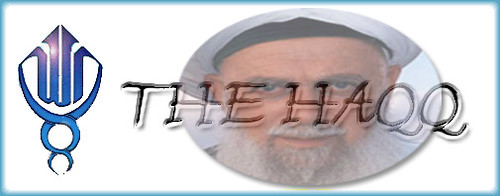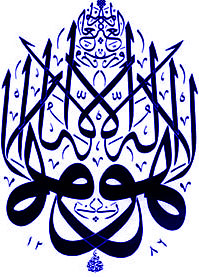To be in the world but not of it
Question: What does it mean to be in the world but not of it?
Reply: Let me answer that question by telling you a story. Ibn Arabi, who is considered to be the greatest sheikh in Sufism, was traveling to Mecca, and he passed through Tunisia. In Tunisia he was told that there was a holy man living there who he must visit. This holy man was a fisherman who lived in a mud hut on the beach and caught three fish a day, no more, and he gave the bodies of these fish to poor and hungry people. He himself boiled the heads of the fish, and just ate the heads. He did this day after day, year after year. He was living the life of a monastic person, a person who has divorced himself from the world totally, and, of course, Ibn Arabi was very impressed with this discipline. So he talked to the fisherman and the fisherman asked, "Where are you going? Are you going to pass through Cairo?" Ibn Arabi nodded and the fisherman said, "My sheikh lives there. Will you please visit him and ask him for advice for me, because all these years that I have been praying and living humbly like this, I haven't received any advancement in my spiritual life. Please ask him to give me advice."
Ibn Arabi promised him that he would, and so when he arrived in Cairo, he asked the people in the city where this sheikh lived and they said, "Do you see the huge palace on the top of the hill? He lives there." So he went to this beautiful palace on the top of the hill, knocked on the door, and was received very well. They brought him into a large, luxurious waiting room, gave him food to eat, and made him comfortable. But the sheikh had gone to visit the king. And Sufis don't normally visit kings or people in high positions. It's forbidden because they can become an additional curtain between us and God, an additional attachment to the world.
While Ibn Arabi was in this luxurious room waiting for the sheikh, he looked out the window and saw a procession coming. The sheikh was riding a beautiful Arabian horse and was wearing a big turban, diamond rings, a fur coat, and had a whole honor guard of soldiers at his side, and he arrived with great pomp at the palace. But he was a very nice man, and came and greeted Ibn Arabi warmly, and they sat down and started talking. At some point in the conversation, Ibn Arabi said, "You have a student in Tunisia." And the sheikh replied, "Yes, I know." And Ibn Arabi said, "He asked for your spiritual advice." "Tell my student," the sheikh said, "If he's so attached to this world, he's never going to get anywhere."
So this was confusing to Ibn Arabi, but on his trip back, he stopped in Tunisia. He went to the fisherman there, who immediately asked, "Did you see my sheikh?" "Yes, I saw your sheikh," he replied. "What did he say?" asked the fisherman. And Ibn Arabi, looking uncomfortable, said, "Well, your sheikh, you know, he lives in great pomp and great luxury." The fisherman replied, "Yes, I know. What did he say?" So Ibn Arabi told him: "He said as long as you're so attached to this world, you are never going to get anywhere." And the fisherman cried and cried. "He's right," he said, "each day, when I give those three fish bodies to the people, my heart goes with them. Each day, I wish I could have a whole fish instead of just a head, while my sheikh lives in great luxury but doesn't care at all about it. Whether he has it or not, it doesn't touch him."
That's what it means to be in the world but not of the world. It means that, as Sufis, we are supposed to be out in the world participating in the world, but not falling in love with the world. There is a hadith [a saying of the Prophet Muhammad] that tells us: The world is your friend if it reminds you of God, and it is your enemy if it makes you forget God.
from: An Interview with Sheikh Tosun Bayrak al-Jerrahi
by Carter Phipps for "What is Enlightenment?"
Read more!



